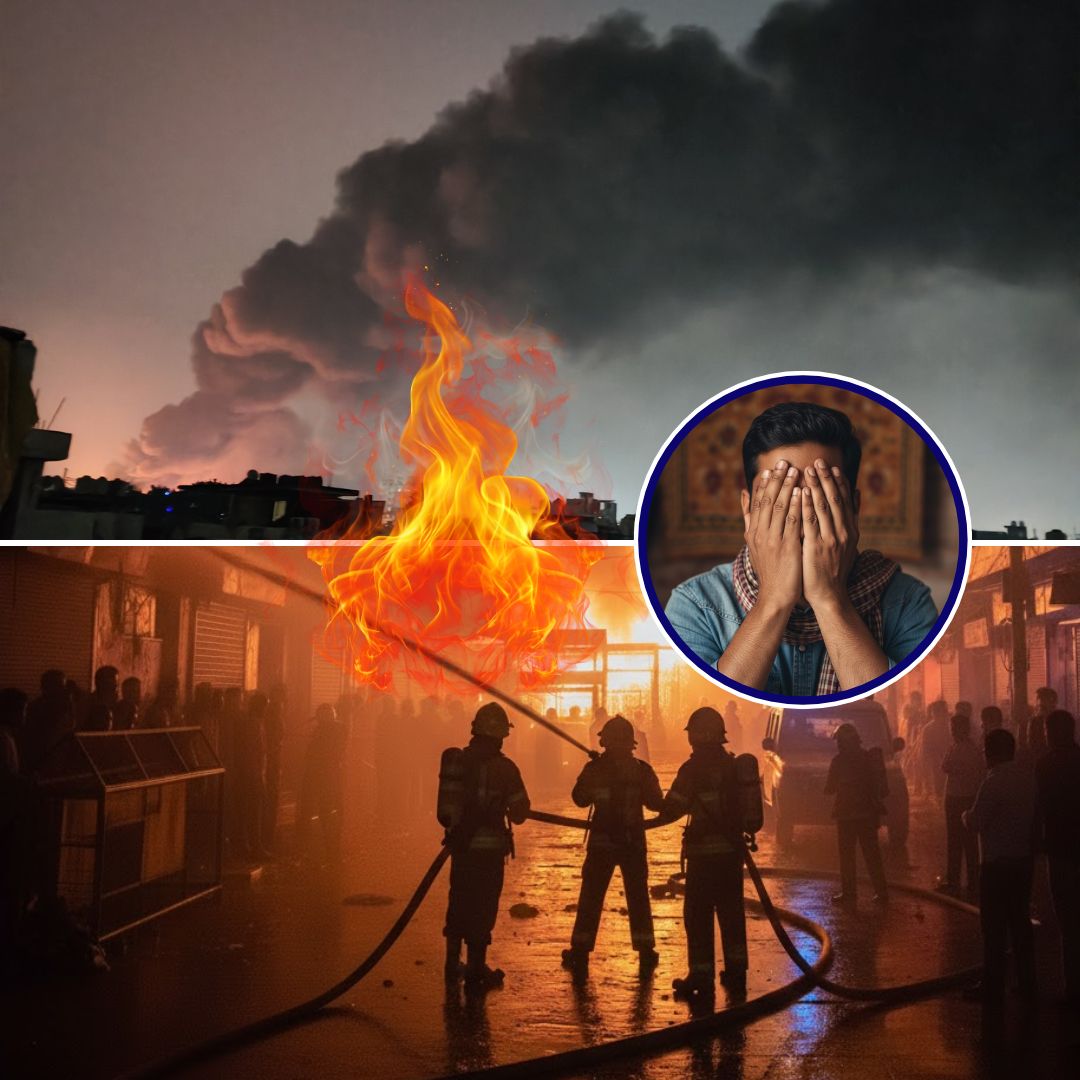Late on the night of Friday, November 7, 2025, a massive fire broke out in Bengali Basti, a slum located near the Rithala Metro Station in Delhi. The blaze rapidly spread through the densely packed huts, consuming several hundred makeshift homes constructed primarily from highly flammable materials such as wood, plastic sheets, and tarpaulin.
According to the Delhi Fire Services (DFS), the fire was declared of medium category due to its intensity. Firefighter SK Dua confirmed that 29 fire tenders were deployed to control the blaze, working relentlessly for hours until the situation was brought under control.
Tragically, the fire claimed the life of one man, while a child was injured and rushed to Safdarjung Hospital for treatment. Authorities are currently assessing the damage and investigating the cause of the fire as further details awaited.
Response and Impact on Residents
The fire ignited panic among the residents of Bengali Basti, many of whom scrambled to salvage their belongings and flee to safety. Exploding LPG cylinders stored in the huts intensified the flames, making firefighting efforts more challenging and dangerous.
Eyewitnesses described thick black smoke billowing into the night sky as the fire engulfed homes one after another. Police cordoned off the area to prevent onlookers from approaching the scene, ensuring safety and allowing emergency personnel to operate efficiently.
The densely populated settlement, home mainly to rag pickers and low-income families, suffered extensive losses as the flames gutted several hundred huts, leaving many displaced and in urgent need of relief support such as shelter, food, and water.
Background and Broader Concerns
Bengali Basti is situated between Rithala Metro Station and the Delhi Jal Board premises, an area characterised by informal settlements vulnerable to fire hazards due to overcrowding and poor infrastructure. This fire serves as a stark reminder of the inherent risks faced by residents of such slums, where the storage and usage of LPG cylinders without adequate safety measures significantly elevate the dangers.
Previous incidents in similar urban settings have shown how quickly such fires can turn catastrophic, underscoring the need for systemic change. Following the incident, local authorities have mobilised relief efforts to provide affected families with temporary shelter and assistance, while the investigation into the fire’s cause remains ongoing.
The Logical Indian’s Perspective
The tragic fire in Bengali Basti reinforces the necessity for comprehensive reforms in urban safety standards, especially in informal settlements. There is a pressing need for governments to prioritise the development of safer housing infrastructure and ensure stringent enforcement of fire safety regulations.
Beyond physical infrastructure, awareness campaigns and emergency preparedness training tailored to vulnerable communities can mitigate the impact of such disasters. Embracing compassion and empathy, societies must come together to ensure no community lives under the constant threat of such tragedies.











